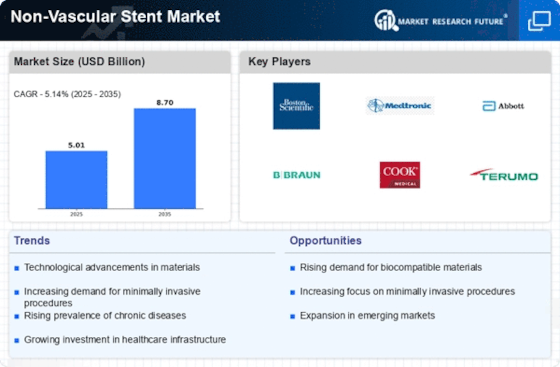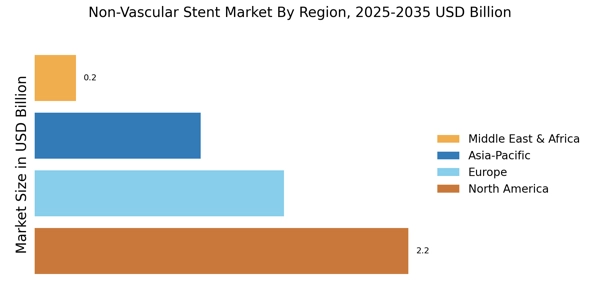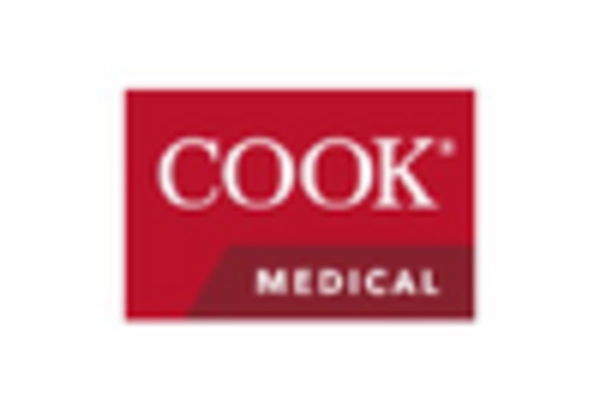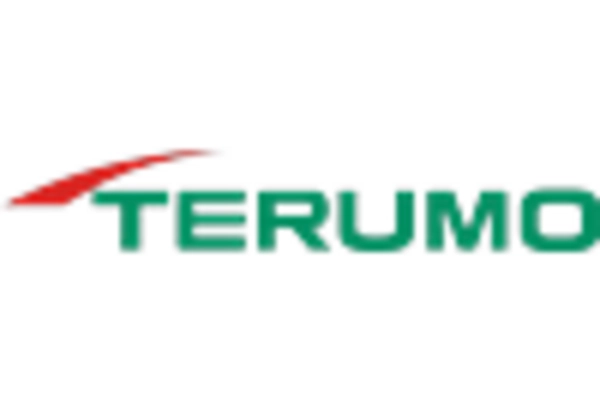Growing Geriatric Population
The demographic shift towards an aging population is significantly influencing the Non-Vascular Stent Market. As individuals age, they are more susceptible to various health issues that may require stenting procedures, such as urinary tract obstructions and biliary complications. The World Health Organization projects that the number of people aged 60 years and older will double by 2050, which suggests a corresponding increase in the demand for non-vascular stents. This demographic trend is likely to create a sustained market for stents, as healthcare providers seek effective solutions to manage age-related health challenges. Consequently, the non-vascular stent market is poised for growth, driven by the needs of an increasingly elderly population.
Expansion of Healthcare Infrastructure
The expansion of healthcare infrastructure in various regions is contributing to the growth of the Non-Vascular Stent Market. As healthcare facilities improve and expand, access to advanced medical technologies, including non-vascular stents, becomes more widespread. Investments in healthcare infrastructure, particularly in emerging markets, are facilitating the availability of stenting procedures to a broader patient population. This trend is likely to enhance the overall market landscape, as more healthcare providers adopt non-vascular stenting solutions to meet the increasing demand. The ongoing development of healthcare systems is expected to support the growth trajectory of the non-vascular stent market, potentially leading to increased revenues and market penetration.
Increasing Prevalence of Chronic Diseases
The Non-Vascular Stent Market is experiencing growth due to the rising prevalence of chronic diseases such as cancer, gastrointestinal disorders, and urological conditions. These diseases often necessitate the use of stents for effective management and treatment. For instance, the incidence of gastrointestinal cancers has been on the rise, leading to a greater demand for non-vascular stents that can alleviate obstructions. As healthcare systems adapt to these challenges, the market for non-vascular stents is projected to expand, with estimates suggesting a compound annual growth rate of around 6% over the next few years. This trend indicates a robust need for innovative stenting solutions that cater to the complexities of chronic disease management.
Technological Innovations in Stent Design
Technological advancements play a pivotal role in the Non-Vascular Stent Market, as innovations in stent design and materials enhance their functionality and patient outcomes. Recent developments include the introduction of biodegradable stents and drug-eluting stents that release therapeutic agents to prevent complications. These innovations not only improve the efficacy of stenting procedures but also reduce the risk of adverse events, thereby increasing patient safety. The market is witnessing a shift towards more sophisticated stent designs, which are expected to capture a larger share of the market, potentially reaching a valuation of several billion dollars in the coming years. This evolution in technology is likely to drive competition and investment in the non-vascular stent sector.
Rising Awareness and Acceptance of Stenting Procedures
There is a notable increase in awareness and acceptance of stenting procedures among patients and healthcare providers, which is positively impacting the Non-Vascular Stent Market. Educational initiatives and improved communication regarding the benefits of stenting have led to greater patient engagement in treatment decisions. As patients become more informed about their options, the demand for non-vascular stents is likely to rise. Furthermore, healthcare professionals are increasingly recognizing the advantages of minimally invasive stenting techniques, which can lead to quicker recovery times and reduced hospital stays. This growing acceptance is expected to drive market growth, as more patients opt for stenting as a viable treatment option.

















